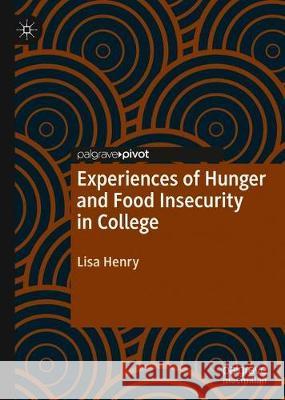Experiences of Hunger and Food Insecurity in College » książka
topmenu
Experiences of Hunger and Food Insecurity in College
ISBN-13: 9783030318178 / Angielski / Twarda / 2019 / 131 str.
Kategorie:
Kategorie BISAC:
Wydawca:
Palgrave Pivot
Język:
Angielski
ISBN-13:
9783030318178
Rok wydania:
2019
Wydanie:
2020
Ilość stron:
131
Waga:
0.40 kg
Wymiary:
21.01 x 14.81 x 1.42
Oprawa:
Twarda
Wolumenów:
01
Dodatkowe informacje:
Wydanie ilustrowane











